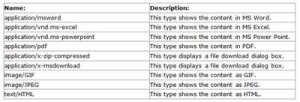SharePoint has a nice feature to trace the activity happening around the site. This is called Usage Reporting. Initially this is been disabled in SharePoint. To use it first you needs to enable this from several levels as follows.
1. Enable Usage Reporting from Windows SharePoint Services (WSS) level.
2. Enable Usage Reporting from Microsoft Office SharePoint Services (MOSS) level.
3. Activate Usage Reporting.
4. View Usage Reports.
1. Enable Usage Reporting from Windows SharePoint Services (WSS) level.1)On the Central Administration home page, click
Operations.
2)On the Operations page, in the
Logging and Reporting section, click
Usage analysis processing.
3)On the Usage Analysis Processing page, in the
Logging Settings section, select
Enable logging.
4)Keep the default or type a log file location and number of log files to create.
5)In the
Processing Settings section, select
Enable usage analysis processing, and then select a time to run usage processing.
6)Click
OK.
Now we have to enable in MOSS.
2. Enable Usage Reporting from Microsoft Office SharePoint Services (MOSS) level.1)On the Shared Services Provider (SSP) home page, in the
Office SharePoint Usage Reporting section, click
Usage reporting.
2)On the Configure Advanced Usage Analysis Processing page, in the
Processing Settings section, click
Enable advanced usage analysis processing.
3)In the
Search Query Logging section, select
Enable search query logging.
4)Click
OK.
3. Now Activate Usage Reporting.1)On the
Site Actions menu, click
Site Settings.
2)On the Site Settings page, in the
Site Collection Administration section, click
Site collection features.
3)On the Site Collection Features page, click the
Activate button for the
Reporting feature.
Now everything done. You just have to wait and see the reports when they are available.
Reports can be viewed in several places,
1)Site administrators, including administrators of the SSP administration site, can view usage reporting for their site by clicking
Site usage reports in the
Site Administration section of the Site Settings page.
2)Site collection administrators can view usage reporting by clicking
Site collection usage reports in the
Site Collection Administration section of the
Site Settings page.
3)Site collection administrators for the SSP administration site can view a usage summary by clicking
Usage summary in the
Site Collection Administration section of the
Site Settings page.
4)SSP administrators for search can view search usage reports by clicking
Search usage reports in the
Search section of the SSP home page.
If you would like you can go through the Microsoft TechNet site which I too referred by visiting the following link.
http://technet.microsoft.com/en-us/library/cc262541(TechNet.10).aspx

 This error is due if the
This error is due if the 



 Normally this '
Normally this ' Now you will see the class ('
Now you will see the class ('
